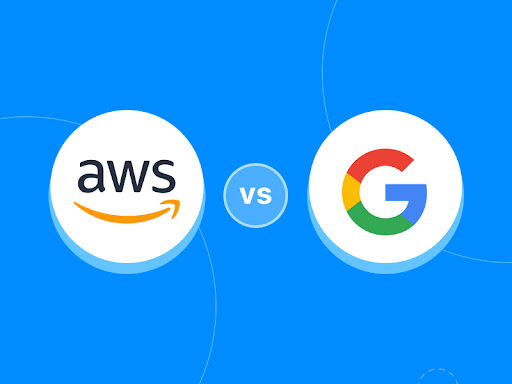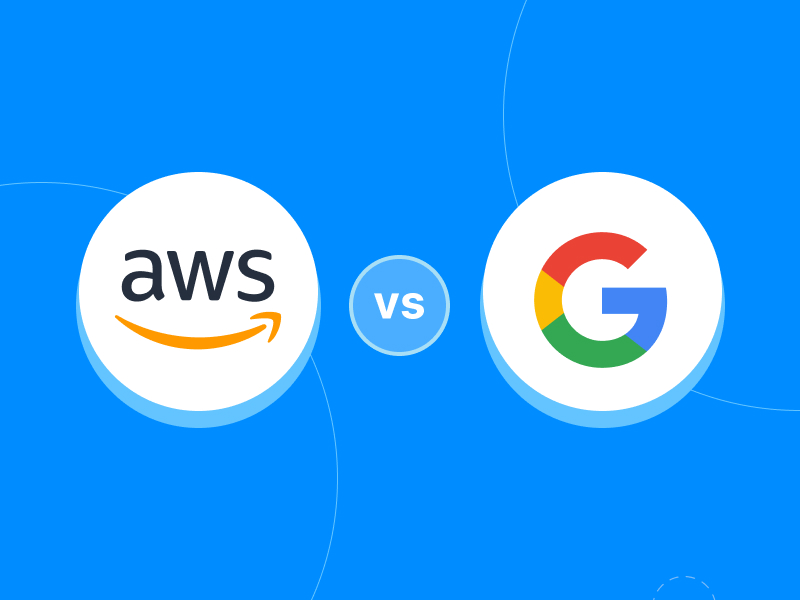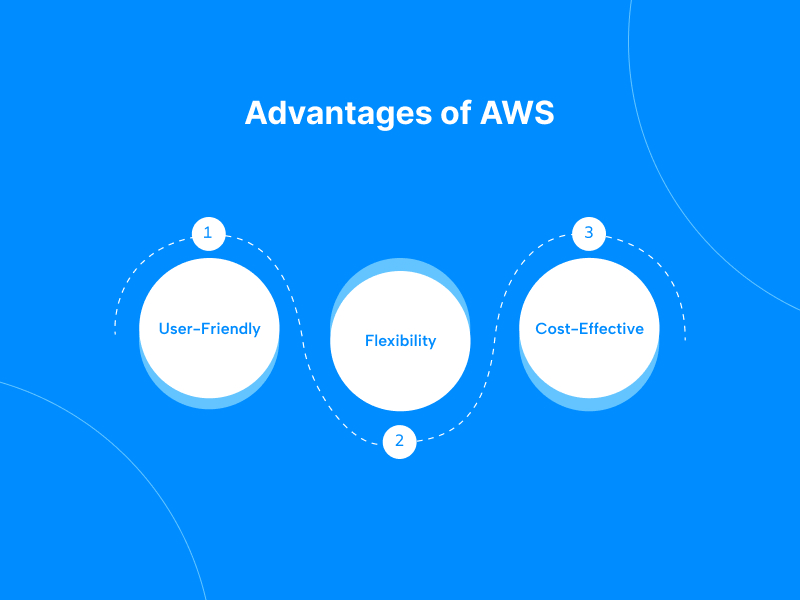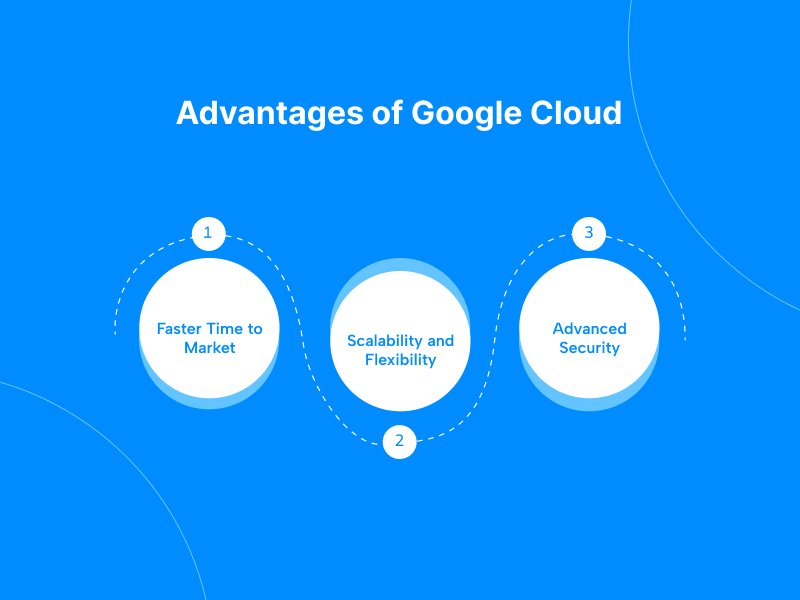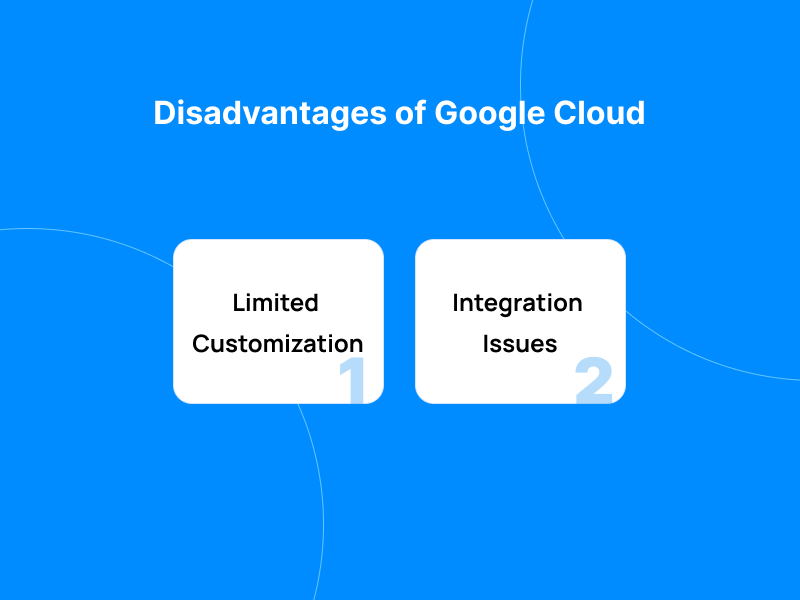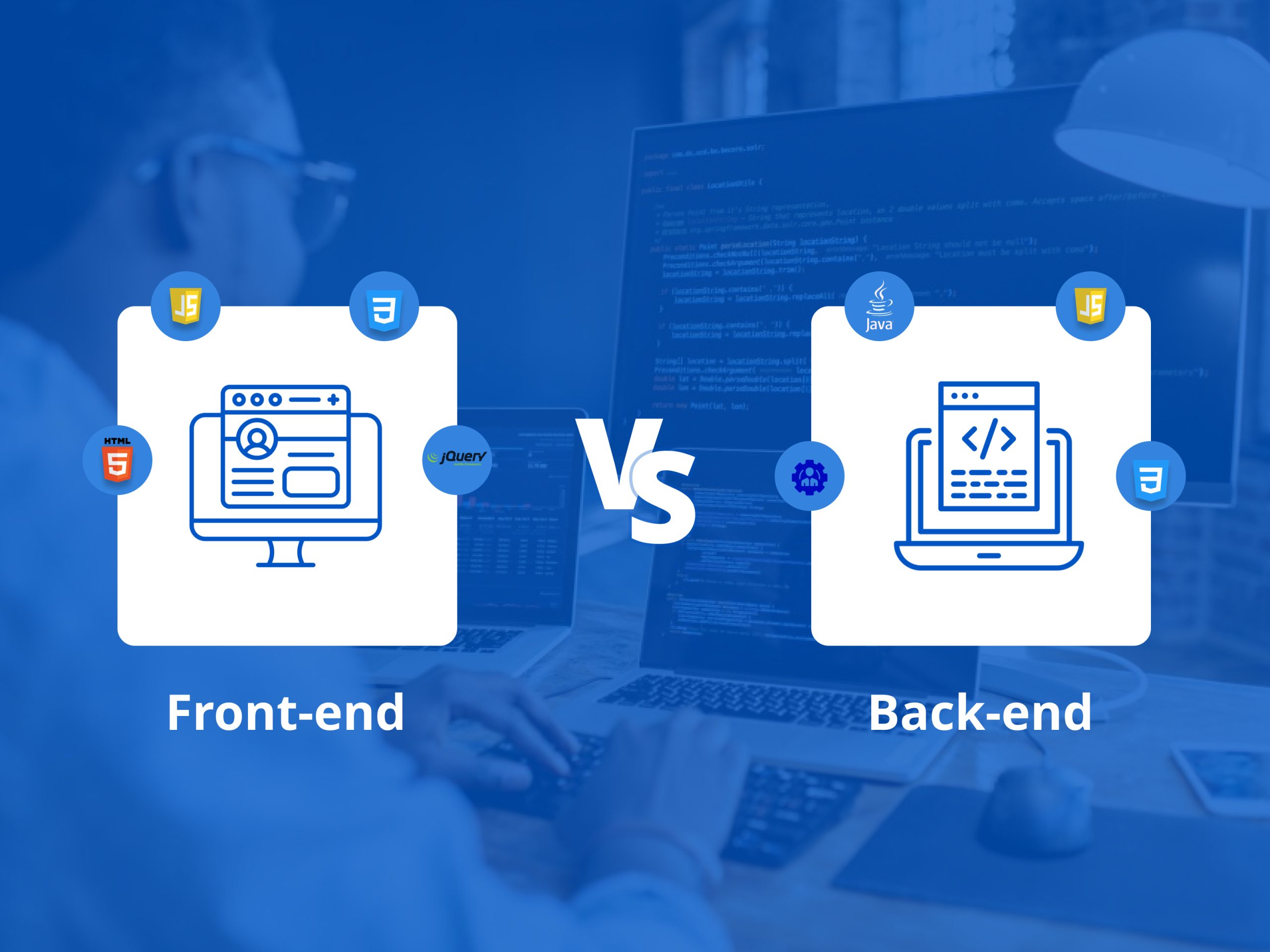The face-off between Amazon Web Services (AWS) and Google Cloud Platform (GCP) has become one of the most talked-about battles in the tech industry. From core cloud services and user experience to pricing and pricing models, the differences between the two are pronounced.
But AWS vs Google, which cloud solution should you choose for your business?
This article will provide you with a comprehensive analysis of the strengths and weaknesses of the two biggest players in the cloud market.
Let’s start with their pros and cons.
Table of Contents
The Advantages & Disadvantages of AWS and Google Cloud for Enterprises
AWS
AWS cloud computing platform helps to develop cloud-based apps. In addition to providing numerous infrastructure and software services, it also offers computational power, scalability, dependability, and secure database storage. The following are its advantages and disadvantages to know it better.
Advantages of AWS
1. User-Friendly: AWS is simple to use since it is explicitly built for speedy and secure access. Users can change their data as per their needs. Most businesses find starting with AWS as their cloud provider far simpler than with Azure or Google Cloud Platform.
You can learn how to utilize all of AWS’s services with the help of the information, documentation, and video tutorials provided.
2. Flexibility: Flexibility is another reason why businesses favor AWS. It always allows you to use the web application platforms, programming languages, and operating systems you are most familiar with. You can create your virtual computing environment using a service like AWS EC2 by configuring your preferred operating systems and applications.
AWS offers all the top services your application needs to run well. It can make the migration process easier, and you can simultaneously work on brand-new solutions.
3. Cost-Effective: If you choose the traditional route, you’ll have to invest a lot of time and money into building your servers to house your data and applications. You can use AWS, where you pay for the tools and services you need, rather than investing a lot of money in creating pricey servers.
AWS provides a pay-as-you-go pricing model, which allows a business to only pay for the services it uses and has used for a while. You only pay for the units you’ve used, similar to how you would spend your electricity bill. These AWS services are distinctive and more affordable than the conventional computing approach.
Disadvantages of AWS
1. Lack of Experts: AWS’s newest invention has a sophisticated infrastructure. Thus, employing experts to work on the cloud infrastructure is necessary for businesses adopting AWS as their platform for cloud computing. However, only some professionals are knowledgeable about AWS or any other cloud provider.
Companies are willing to invest in cloud technology but need help locating suitable AWS personnel who can help these businesses perform better. AWS may suffer from this in terms of time and money.
2. General Issues: Amazon occasionally has cloud computing problems due to its size and its millions of clients. Server outages sometimes affect users. It can result from the cloud provider’s network connectivity issues or a power outage. Whatever the case, it can be fixed eventually.
Google Cloud
The Google Cloud Platform (GCP) is a collection of cloud computing services that utilizes the same internal infrastructure as Google’s consumer products like Google Search, file storage, and YouTube. It offers users a wide range of benefits over the Internet and allows for the development and hosting of custom applications. Let’s discuss them below:
Advantages of Google Cloud
1. Faster Time to Market: Developers can speed up work with quick deployments because it lets them spin up new instances or shut them down in seconds. Cloud computing promotes new development by allowing it to test new ideas and develop new applications without being bound by hardware or waiting through drawn-out procurement processes.
2. Scalability and Flexibility: Your company will have more freedom with the help of Google cloud computing. You can easily increase resources and storage to meet business demands without investing in physical infrastructure.
Businesses can buy or construct the infrastructure to support their maximum load levels. In the same way, if resources aren’t being used, they might cut back quickly.
3. Advanced Security: Contrary to what many believe, the depth and breadth of security features, automatic maintenance, and centralized management of cloud computing can increase your security posture.
To ensure more robust security, reputable cloud providers collaborate with top security experts and employ cutting-edge methods.
Disadvantages of Google Cloud
1. Limited Customization: The platform provides a wide range of services and functions, but there needs to be more room for customization. Companies requiring more specialized solutions or particular features that Google Cloud does not provide may find this a barrier.
For instance, companies may need to integrate particular third-party applications or modify network settings to suit their requirements. However, Google Cloud does not offer such customization possibilities, making it difficult for businesses to suit their unique needs.
2. Integration Issues: The integration problems with Google Cloud are yet another drawback. Despite the platform’s reputation for reliability and scalability, connecting it with other programs or systems can take time and effort.
Due to the fact that Google Cloud may only sometimes effortlessly interact with every application or service, this could be especially troublesome for enterprises that depend on a wide range of them. Companies may need to spend a lot of money to ensure that all their apps and systems are properly integrated.
Choosing Between AWS and Google Cloud: A Comparative Analysis
When choosing a cloud service provider, there are several options to consider. Amazon Web Services and the Google Cloud Platform are two of the most well-liked solutions. The following are the difference between them are as follows:
Amazon AWS vs Google Cloud: Market Share
The cloud market is expected to grow at a 19.1% annual growth rate. The cloud sector may have a market value of $376.37 billion by 2029. Amazon, Microsoft, and Google dominate 64% of the cloud market share.
AWS’s current web hosting market share is in the 2nd position at 5.8%, whereas Google Cloud is in the 5th position with a 3.2% share.
Amazon AWS vs Google Cloud: Availability Zones
Every firm seeks out cloud providers who can offer reliable services with little chance of interruptions. Availability zones are one of the most important considerations when deciding between these cloud providers because regions and availability zones directly affect robustness and the likelihood of outages.
AWS has had a lot of time to develop its infrastructure as it was the first of its kind. AWS already provides hosting services in several countries.
There are 21 geographical locations in the world where AWS is accessible. Each AWS region consists of a number of availability zones, which are discrete, limited geographic locations. There are 66 availability zones in AWS, and 12 more are coming.
Google Cloud Platform is currently accessible in 20 locations across the globe, with the addition of 3 more and 61 zones worldwide.
All in all, AWS has more availability zones and regions than GCP.
Amazon AWS vs Google Cloud: Storage
When it comes to storage, Amazon AWS and Google Cloud take different tracks. AWS provides block storage, object storage, and file storage. Additionally, it offers Glacier various storage tiers for archival preservation, ranging from standard to occasional access. Amazon Web Services (AWS) provides a variety of services, including Amazon S3, Amazon EBS, Amazon EFS, and Amazon Glacier.
On the other hand, Google Cloud Storage is a distinct storage strategy that focuses on object storage. Massive volumes of unstructured data can be handled by the highly scalable, highly accessible, and robust object storage solution provided by Google Cloud Storage.
Additionally, Google Cloud offers file storage choices, including Cloud Filestore, which is best suited for high-performance computing workloads.
All things considered, both AWS and Google Cloud give several storage solutions, although AWS offers a broader range while Google Cloud focuses on object storage.
Amazon AWS vs Google Cloud: Support
To deploy a new cloud service, you will need solid skills to complete a task. In this case, you might require advice on which supplier to select from someone with solid subject knowledge.
However, both Google Cloud and AWS offer significant collections of technical literature. In addition, each of the two cloud service providers has a growing community of cloud professionals eager to share their knowledge and expertise.
You can also consult numerous documents or go to their official websites for guidance on pertinent issues that will assist you in selecting the ideal service provider for your business when you are required to have the knowledge and need assistance selecting the service. You will need sophisticated expertise and direct help at that point.
Regarding the support structure, both service providers give free essential support in addition to several paid premium plans. If you intend to choose a premium plan, you should do your due diligence and comprehend the services provided and what is included in them. There will be additional costs for the premium plans.
Amazon AWS vs Google Cloud: Security
Cloud Service is one of the many crucial factors to consider when selecting a cloud service provider for your company. The following are the criteria you need to consider while picking a cloud service provider:
- Controls
- Policies
- Processes
- Technologies
Although Google Cloud and AWS are both known for offering state-of-the-art cloud security, here is a thorough analysis of how the two companies safeguard their cloud:
- Security of their cloud: The cloud platform’s underlying architecture has security measures that aid in safeguarding by design.
- Cloud security: You may improve the protection of your apps and data by using additional security services and products offered in their cloud platform
- Security anywhere: Extending security capabilities outside their cloud platform with protocols like encryption primarily relates to protecting your assets regardless of location.
Amazon AWS vs Google Cloud: Cost
Pay-as-you-go pricing for Amazon AWS allows users to only pay for the resources they really utilize. AWS offers a range of pricing alternatives based on the kind and quantity of resources required, such as computing, storage, and database services.
On the other hand, Google Cloud provides a similar usage-based price structure with greater savings for long-term commitments, such as up to 57% off for utilizing instances for a year. Google additionally provides a free tier so consumers can test its services without paying anything.
Overall, both services’ prices are very reasonable, and both providers give various solutions to accommodate multiple business sizes and needs. Ultimately, the business’s particular requirements and financial constraints will determine which cloud computing service is used.
How can PixelCrayons help in Cloud Adoption?
PixelCrayons is an experienced software development company that can help businesses with their cloud adoption journey in various ways. Here are some ways PixelCrayons can assist with cloud adoption:
1. Cloud Readiness Assessment: Before a business can adopt cloud technology, it must understand its readiness for cloud adoption. PixelCrayons can assess your existing IT infrastructure, applications, and business processes to determine if you’re ready to migrate to the cloud.
2. Cloud Strategy and Planning: Once your business is ready to adopt the cloud, PixelCrayons can help you develop a cloud strategy and roadmap for your migration. They can help you determine which cloud platform best suits your needs, whether AWS, Azure, or Google Cloud, and plan a phased approach for the migration.
3. Cloud Migration: PixelCrayons can help you migrate your existing on-premises infrastructure and applications to the cloud. They have experience migrating a wide range of applications, including custom, legacy, and third-party applications.
4. Cloud Application Development: If your business is looking to develop cloud-native applications or modernize existing applications to run in the cloud, PixelCrayons can help. They have experience developing cloud-based applications and can assist with developing or migrating existing applications to the cloud.
5. Cloud Security: PixelCrayons can help you ensure the security of your cloud environment by implementing best practices and security controls to protect your data and applications. They can also help you comply with industry-specific regulations and standards, such as HIPAA, GDPR, and PCI-DSS.
PixelCrayons can help businesses at every stage of their cloud adoption journey, from assessing their readiness for cloud adoption to developing and maintaining cloud-based applications.
Also Read: Cloud Application Development: An In-depth Guide
Final Call – Which is Better?
So, who wins the cloud battle as a whole?
While Amazon Web Services might be in the lead regarding users, services, products, and market shares, Google Cloud is often considered more cost-effective than AWS, especially for businesses using data analytics, machine learning, and artificial intelligence services. It offers more affordable pricing for these services, making it a popular choice for businesses that require these services regularly.
And if you consider the element of trust, Amazon Web Services, with its five-year head start, undoubtedly has more trustworthy relationships with its customers.
On the other hand, Google makes the Google Cloud Platform sound enticing because of its track record for creating market-leading technologies.
All in all, it would be more accurate to state that deciding between Google Cloud and AWS is a matter of personal preference.
Frequently Asked Questions
Q1: What are the primary differences between AWS and Google Cloud Platform?
The fundamental distinction between Google Cloud Platform and AWS is how each platform approaches cloud computing.
While Google Cloud Platform is oriented towards giving developers the tools and infrastructure to build and deploy their apps, AWS primarily focuses on delivering a range of services that allow enterprises to run their applications on the cloud.
Q2: Which Cloud Service Provider is Better for C0st-Effective Solutions?
Google Cloud Platform is the unchallenged leader in terms of service costs. A 2CPU 8GB RAM instance on GCP costs $50 per month, compared to $69 for an equivalent example on AWS and you save 25%. The Google Cloud Platform excels in pricing by offering cost efficiency of over 50%. On the other hand, Amazon Web Services (AWS) has been on the market for far too long and is dominating with a significant market share. While Google Cloud has been catching up to AWS with over 60 services, Amazon still offers over 200 services.
Q3: What are the Key Differences in the Pricing Models of AWS and Google Cloud Platforms?
Different pricing options are available from AWS and Google Cloud Platform, with AWS often charging by the hour or consumption while Google Cloud Platform typically costs by the minute.
Additionally, Google Cloud Platform often gives more flexibility in its pricing than AWS, which frequently requests long-term commitments from clients in exchange for lower prices.
Q4: Which Cloud Service Provider is Better for Data Storage and Processing?
AWS and Google Cloud Platforms are great data processing and storing options since they provide various services to assist organizations with storing, processing, and analyzing their data. However, Google Cloud Platform might be a better choice for smaller projects that need quicker processing speeds, whereas AWS is often regarded as the superior alternative for large-scale data processing and storage.

